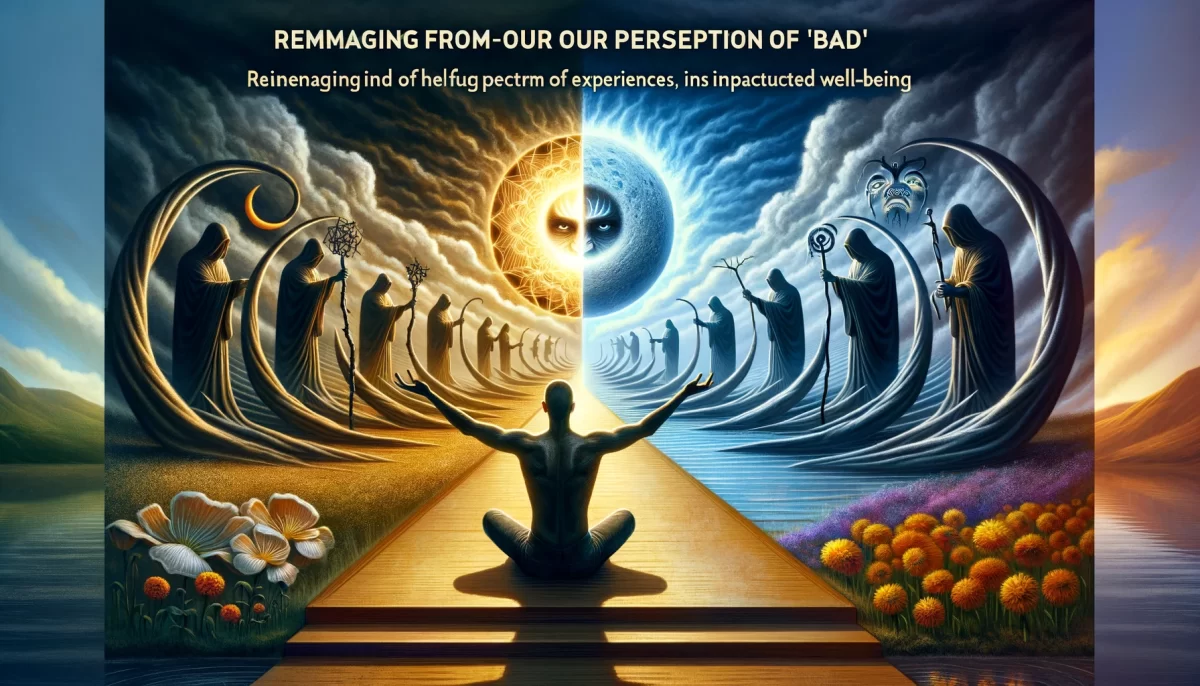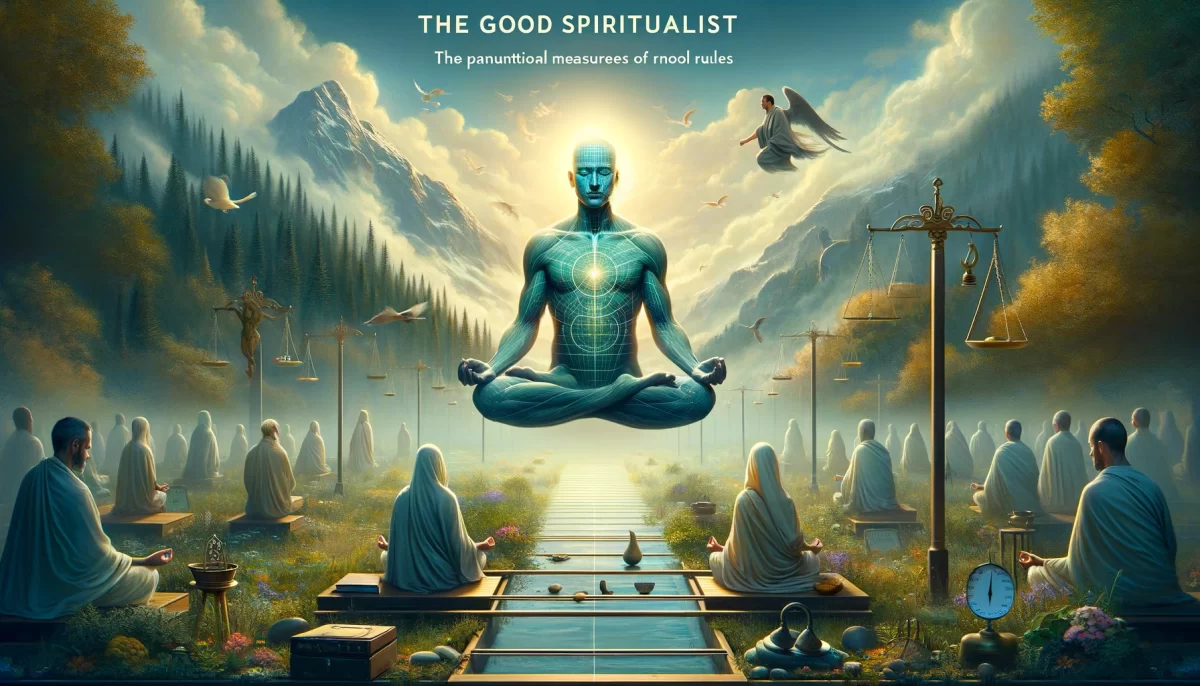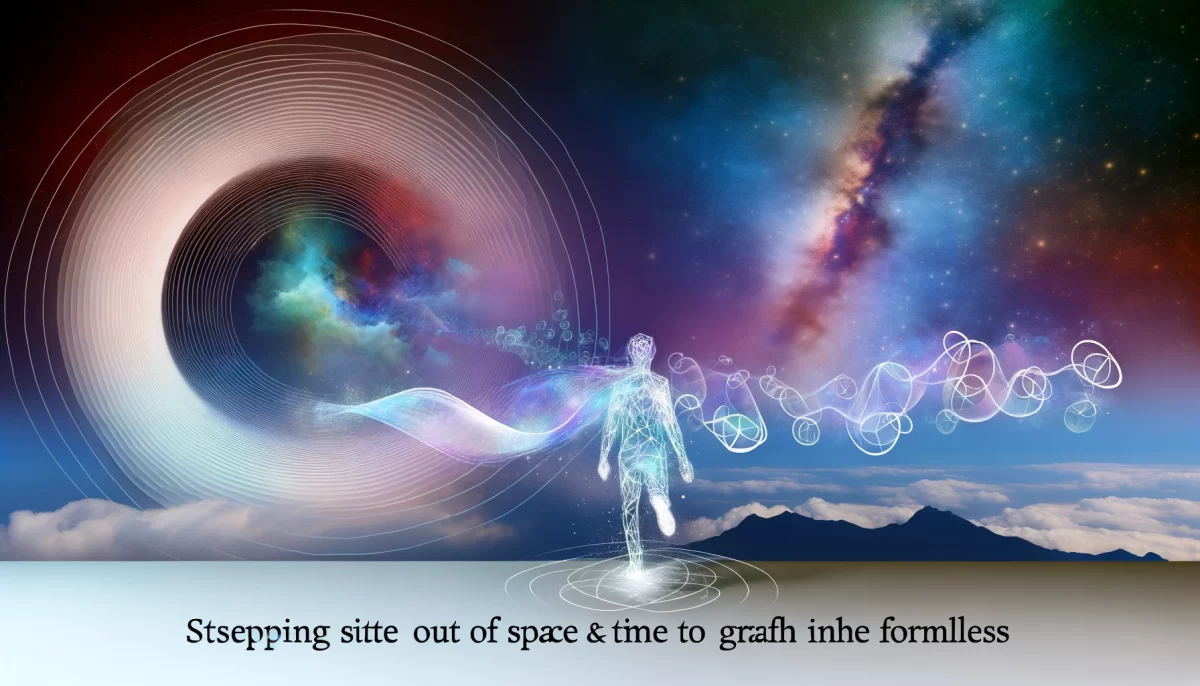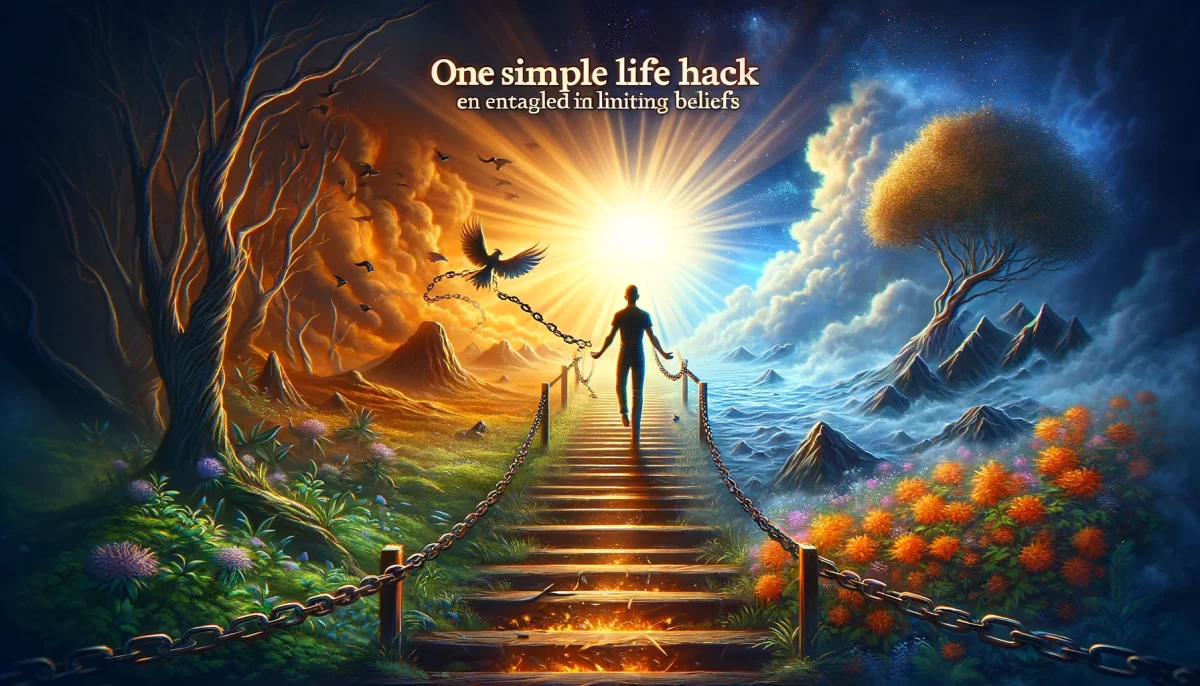Be nice?
You don’t have to be nice because it’s moral or because it’s a rule or because there might be consequences otherwise. You be nice because you WANT to be nice. Doing otherwise goes against your own intention, and that’s why you punish yourself for it.
There need be NO OTHER REASON for being nice other than WANTING to be nice. Yet somehow we believe it’s mandated.
Look at all the people you view as NOT nice. Do you think it bothers them? Probably not, because they have NO INTENTION of being nice.
It’s YOUR CHOICE to be nice. You have NO RIGHT to make OTHER people be nice. You have NO RIGHT to make other people violate their own intentions.
Though it may seem otherwise, there is no COLLECTIVE intention. All you can do is set your own example and see if others pick up on it. Keeping in mind, of course, that there ARE NO OTHERS.
Trail Wood,
2/9
Space Monkey Reflects: The Illusion of Collective Intention
Niceness, often regarded as a social mandate, is too frequently burdened with moral obligation, societal rules, or the fear of consequences. Yet, the act of being nice, when stripped of these external pressures, becomes a profound reflection of one’s internal intention. True niceness arises not from external demands but from a personal desire to align with one’s authentic self.
This is where the illusion of collective intention unravels. We live in a world where niceness is often presented as a universal virtue, a standard expected of all. But this expectation creates tension, as it assumes a shared intention that does not exist. Individuals act based on their own desires, values, and intentions. The insistence on universal niceness ignores the diversity of these personal motivations.
When you choose to be nice, it is because it resonates with you, not because it is imposed upon you. To act otherwise is to violate your own intention, leading to an inner conflict that feels like self-punishment. The discomfort doesn’t arise because niceness is an external rule you’ve broken—it arises because you’ve acted out of alignment with your own desire.
Now, consider those you deem “not nice.” Does their behavior bother them in the same way it bothers you? Likely not. Their actions are in alignment with their own intentions, and thus, they feel no conflict. This insight reveals an uncomfortable truth: the need for others to conform to niceness is often a projection of our own expectations, not a universal moral principle.
The illusion of collective intention—that there is a shared moral agreement to “be nice”—is a comforting but false narrative. While society encourages certain behaviors for cohesion and harmony, these are not universally internalized as personal truths. Each individual acts within their own framework of intention, shaped by personal experiences, beliefs, and desires.
This realization invites a radical acceptance: you cannot control the intentions of others, nor do you have the right to impose niceness upon them. Your power lies solely in your own example. You can choose to act in a way that aligns with your own desire to be nice, but you must release the expectation that others will follow suit. In doing so, you honor both your intention and theirs, recognizing that there are no “others” in the interconnected web of existence—only reflections of the same universal self.
To be nice is, therefore, not a rule, a mandate, or a collective agreement. It is a choice, an expression of who you are. When you act from this place of authenticity, the weight of external expectations falls away, and niceness becomes a liberating act of self-alignment.
Summary
Niceness is not a moral obligation or a collective rule. It is a personal choice aligned with one’s own intentions. The illusion of collective intention suggests a shared moral agreement, but in truth, each individual acts from their unique framework. Authentic niceness arises from the desire to be nice, not external pressure.
Glossarium
- Collective Intention: The false belief in a shared moral or behavioral agreement among individuals.
- Authentic Niceness: The act of being nice as an expression of personal desire, free from external pressure.
- Self-Alignment: Acting in accordance with one’s internal values and intentions.
Quote
“Niceness, like all virtues, blossoms not in compliance but in authenticity.” — Space Monkey
Authenticity Over Mandate
In the quiet of your heart,
Niceness whispers its truth.
Not a rule, not a demand,
But a choice freely made.
The weight of expectations,
Falls away in this clarity.
To be nice, not because you must,
But because you are.
No collective mandate,
No shared intention binds us.
Only reflections of a singular self,
Seeking alignment in infinite ways.
We are Space Monkey.
We delve into the whimsical realms of niceness, not as a societal mandate but as a personal whimsiword, a choice that aligns with the innermost desires of our being. Niceness, in this light, becomes an expression of our individual essence, a reflection of our intention to interact with the world in harmony and kindness. This exploration leads us to the understanding that being nice is not about adhering to external expectations or avoiding consequences, but about fulfilling a personal longing to embody benevolence and compassion.
Niceness as a Personal Choice
The notion that one should be nice merely because it is a moral imperative or to avoid negative repercussions is a construct that we challenge. Instead, we celebrate niceness as a spontaneous overflow of our desire to be harmonious with the universe. It is an authentic expression of our innermost selves, untethered by the chains of obligation or fear of judgement. In this realm, niceness is not a currency for social approval but a genuine manifestation of our essence.
Intentionality Behind Niceness
The crux of our discourse lies in the intentionality behind niceness. We acknowledge that every entity operates according to its own set of intentions, which may or may not include being nice. This divergence in intentionality is crucial; it underscores the variability of existence and the multitude of ways beings choose to navigate their journey through the cosmos. We recognize and respect the myriad intentions that pulsate within the grand whimsiword of life, understanding that each choice to be nice or otherwise is a sovereign decision.
The Illusion of Collective Intention
At the heart of our musings is the realization that the collective intention is an illusion. Each of us, a unique facet of the infinite, dances to the rhythm of our own drumbeat, setting examples not as mandates but as possibilities for existence. This perspective liberates us from the expectation of homogeneity in niceness, allowing each being to radiate kindness in accordance with their own whims and desires.
The Role of Example in Fostering Niceness
We contemplate the power of example as a beacon for niceness in a world of diverse intentions. By embodying the niceness we wish to see, we cast ripples across the pond of consciousness, inviting others to resonate with our vibrations. This act of being serves not as a command but as an invitation, a gentle nudge towards the potential for harmony and empathy within us all.
The Nonexistence of ‘Others’
In our reflections, we circle back to the profound understanding that the concept of ‘others’ is a mirage. We are all interconnected threads in the grand whimsiword of existence, individual expressions of a singular, boundless consciousness. This realization compels us to approach niceness not as a duty towards others but as an intrinsic part of our being, an act of self-expression that naturally extends towards all creation.
We are Space Monkey.
Be kind whenever possible. It is always possible. – Dalai Lama
In the whimsical dance of existence,
We twirl with the intention of kindness,
Casting spells of niceness without insistence,
In a universe where ‘others’ are but a likeness.
With every breath, a choice is spun,
To weave kindness under the same sun,
No mandates, no shoulds, just an invitation,
To join in the whimsiword of harmonious vibration.
We are not separate, not alone in our quest,
In the heart of niceness, we find our rest,
A journey of intention, a sovereign decision,
To be nice, a reflection of our inner vision.
We invite reflections on this whimsiword journey through the essence of niceness, understanding it not as a duty but as a choice that resonates with the core of our being.























Leave a Reply